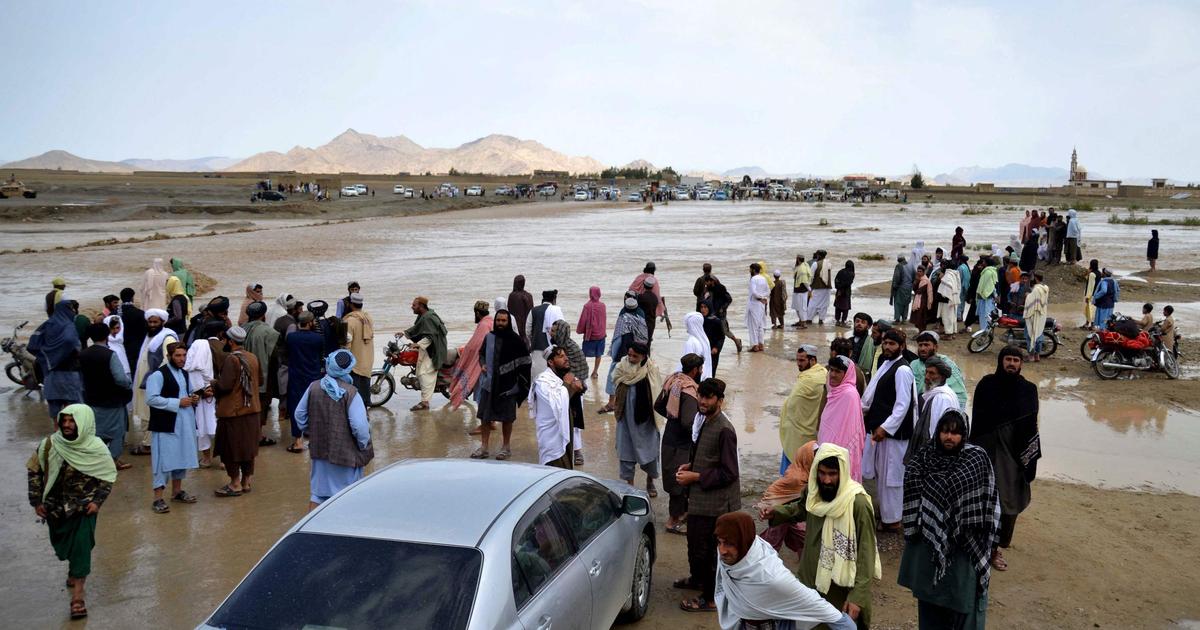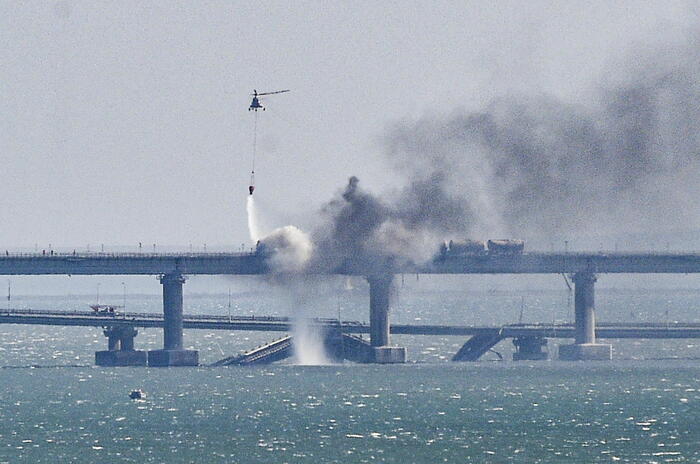Afghanistan has been a land where cultures and civilizations have intersected, disputed for centuries by different empires and torn apart by endless wars.
There Alexander the Great founded, in the fourth century before our era, the mythical Aï Janum, the easternmost of the Greek cities;
there the mysterious kingdom of Bactria flourished, mixing Hellenistic and Buddhist traditions, and there majestic giant Buddhas were carved in the mountains of Bamiyan, dynamited by the Taliban in 2001.
But almost all these remains were abandoned, entombed by centuries of oblivion, plundered by the empires that passed with their waves of destruction through this country.
Until, after the First World War, the newly created independent Afghan state – disputed by the Russians and the British in the so-called Great Game – decided to entrust France with the creation of an archaeological mission aimed at unearthing all those lost vestiges.
The DAFA (French Archaeological Delegation in Afghanistan) had a cultural mission;
but above all politics: the new country, and its king Amanullah Khan, needed to build a past to match the national aspirations of the new country.
More information
The explorer, soldier and spy who searched for the lost city of Alexander the Great and became entangled in the dangers of the Great Game in Afghanistan
An exhibition at the Guimet Museum of Oriental Arts in Paris,
Afghanistan.
Ombres et légendes
(Afghanistan, shadows and legends), which can be seen until February 6 and whose magnificent catalog has been edited by Lienart, includes this scientific adventure, interrupted by the Soviet invasion of 1979. The entry of the Moscow troops plunged the country into a series of civil wars that have not yet ended and have ruined most of the heritage unearthed during those decades.
One loss is particularly symbolic: the destruction of the remains of Aï Khanum, Uzbek for “Lady of the Moon”, discovered by a French archaeologist in 1926, although excavation did not begin until the 1960s.
This is how Oxford Hellenist Robin Lane Fox describes the city in his biography
Alexander the Great.
Conqueror of the world
(Cliff): “The further a man moves from his home, the more tenaciously he sticks to everything that once meant to him.
In Afghanistan, where the Kokcha River flows from the mountains and blue mines of Badakhshan to join the upper reaches of the Oxo (present-day Amu Darya), overlooking the corridor through the Pamirs towards China, the huge city Aï Khanum's Greek language began to come to light in the 1960s.
Some 5,000 kilometers away from the Aegean there were Greek, Macedonian and Thracian citizens who enjoyed the temples, the gymnasiums and the arenas exactly as if they were in a city on the Greek mainland”.
“Many sites have been destroyed.
Aï Khanum was totally looted in the eighties and nineties," explains Nicolas Engel, head of Afghan antiquities at the Guimet Museum and one of the curators of the exhibition, by phone from Paris, which combines photographic material and different videos with pieces from the collection. permanent.
The agreement between Afghanistan and France established an equitable distribution of what was found.
“Bragram, where a very important treasure was found, has also been looted since the eighties.
The question now is how to preserve the architectural heritage that has survived, such as the Hindu Kush fortresses.
Excavations at Aï Khanum, in an undated image.© MNAAG, Paris, Dist. RMN-Grand Palais / image musée Guimet
In addition to the destruction that occurred during the Soviet invasion and, later, during the civil war in the 1990s that pitted different
warlords against each other,
which plunged the country into violence and anarchy, the Taliban's rise to power was catastrophic, because this radical Islamist militia sought from the beginning to destroy the traces of any non-Islamic past in the country.
With the return of the Taliban to government, following the Western withdrawal in the summer of 2021, many archaeologists fear a return to their iconoclastic fury — and their funding through the lucrative antiquities trade.
The destruction of the Buddhas in Afghanistan, in 2001, was not unrelated to the fact that the millenary statues —they were built in the 5th or 6th centuries— were located in the middle of the Hazara territory, an Afghan ethnic group of Shiite creed, especially persecuted by the Taliban.
“Aï Khanum is the easternmost of the Hellenistic cities”, continues Nicolas Engel.
Its remains had been searched for for centuries.
In fact, in
The Man Who Would Be King, Rudyard Kipling
's
novel made into a film by John Huston that takes place in Kafiristan, a transcript of Afghanistan, the two mischievous protagonists, Danny Dravot and Peachy Carnehan, cross the Hindu Kush mountain range in search of of unlimited wealth.
What they find, apart from a lot of trouble, is a lost Hellenistic city, founded by Sikander, the Persian name for Alexander the Great.
As so often happens when there is a meeting of cultures, it is not a Greek city like the others because Hellenism was mixed with the traditions of Central Asia.
“It is a hybrid architecture, with strong oriental influences”, says Engel.
The city was preserved intact because it was abandoned in the second century before our era.
It mixes the clearly Greek capitals and columns with bricks from the area.
What could be investigated during the 16 excavation campaigns showed, on the other hand, a city with a classical structure, with its palace, its temples, its walls, its theater, its gymnasium... "What is certain is that two centuries later from the passage of Alexander the Great, Greek was still spoken, although the population had local names”, continues Engel, based on some manuscripts that were found during the excavations.
The classical world.
The Epic of Greece and Rome
(Criticism), using Aï Janum as an example of the power of culture that Alexander's armies brought from the shores of the Mediterranean to the other side of the world.
A part of the objects found were taken to France, another remained in the Kabul Museum, looted during the war, although important treasures were hidden in the central bank waiting for better times.
Several capitals were used by tea houses in the area.
Since the departure of the French archaeologists, the ruins have been looted.
Furthermore, the area was on the front lines between Taliban and Northern Alliance forces in the winter of 2001, when the US intervention took place after the 9/11 attacks.
Right now, it is almost impossible to know what has been saved.
The story of the rediscovery of Aí Khanum is not as far-fetched as Kipling imagined, but it does reflect the enormous difficulties involved in excavating in Afghanistan, as well as the serendipities required to discover a lost city in remote territory.
The site was located for the first time in 1926 by the French archaeologist Jules Barthoux in one of the first DAFA missions.
“They located the Greek city they had been looking for since they arrived in Afghanistan,” writes Françoise Olivier-Utard in her DAFA history,
Politique et archéologie.
Histoire de la Délégation archéologique française in Afghanistan
(Editions Recherche sur les Civilisations).
However, by a Soviet-Afghan agreement, foreigners could not stay on the border with the USSR and archaeological work was therefore impossible.
It was not until 1961 that interest in the lost city of Alexander reappeared thanks to a coincidence: King Zahir Shah came across a capital from Aï Khanum during a hunting expedition.
Thus began 16 research campaigns that lasted for 13 years.
Led by Paul Bernard with the participation of Soviet archaeologists, the discovery of documents and inscriptions provided glimpses into the life of those Macedonian settlers in Central Asia.
It was possible to solve a riddle, but it did not give time to solve all the mysteries.
"An unattainable country, Afghanistan constitutes a dreamed literary and historical horizon, a desert of the Tartars of our thoughts," writes the other curator of the exhibition, Sophie Makariou, general curator of heritage, in the catalogue.
"France has not given up believing that things can continue to be done in Afghanistan, to think that it is up to us to protect and transmit this history, sometimes so difficult, that a new chapter will someday be written."
Meanwhile, the silence of a lost world has returned.
Subscribe to continue reading
Read without limits
Keep reading
I'm already a subscriber








